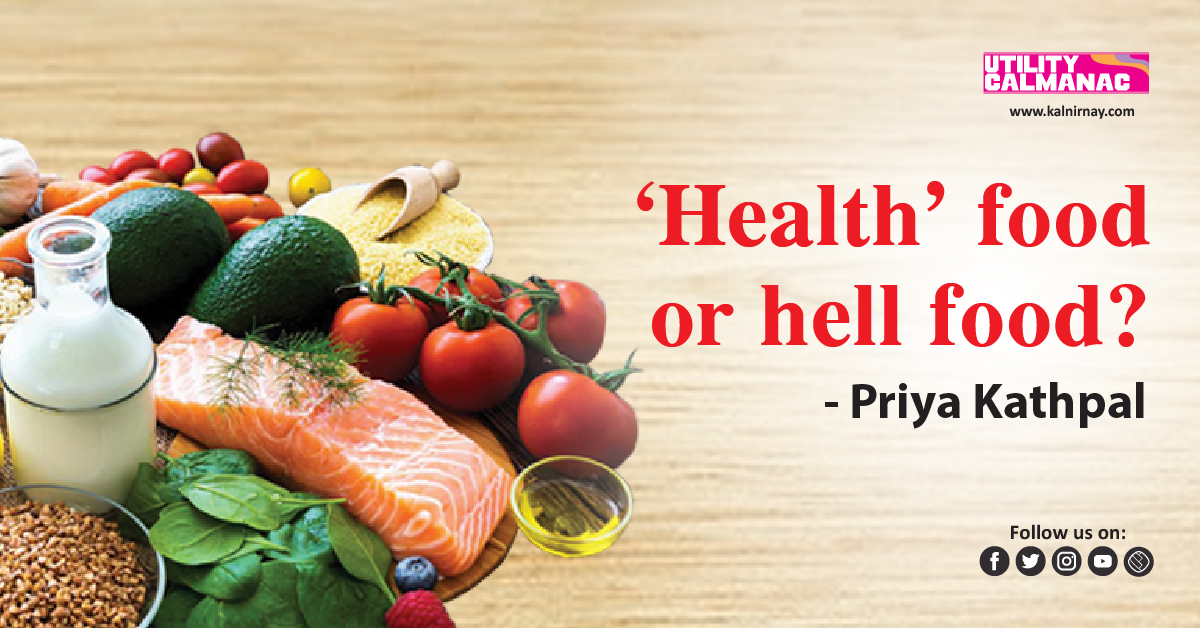‘Health’ food or hell food?
Myths about good and bad food busted!
We live in an era where we have numerous options for most things including healthy food, at the same time, we are confused when it comes to making the right choice for ourselves. The confusion intensifies when it comes to choosing what is right for our health — what makes something healthy or unhealthy?
Information concerning healthy food is generalised. For example, sugar is bad— yes it is, but what about natural sugars? How much of it is bad?
To simply define healthy food — foods that provide your body with the nutrients it needs. Naturally, this means that the definition of healthy will vary from person to person. Having said that, there are some ground rules which make food good or bad. These are unfortunately twisted to market and sell packaged foods.
Carbs are bad for health:
If that were true, we’d have to stop eating salads. You read that right! Salads are carbohydrates. So, a packaged cereal that says it is low on carbs is better than a salad? Puzzled? Breakfast cereals are marketed in the most deceiving fashion. Carbohydrates are essential to a healthy diet and should be consumed as per your needs. What we need to focus on is where these are coming from. Best to consume them when they come from whole fruits, vegetables, nuts, and lentils and keep the refined and processed foods at bay.
This leads us to the word
PROCESSED:
Truth bomb — Not all processed foods are unhealthy. Processed foods include any food that has undergone a treatment before reaching you in its present form. For example, instant noodles are processed and so is almond milk. Biscuits are processed and so are all types of cheese. A little common sense and understanding of the nutritional label will help us make the right choices when it comes to eating processed foods.
Fat-free / low-fat
products :
One, fats aren’t really bad for you. The right quality and quantity will even help you lose weight. Two, it may be low in fats but ever thought about how this food still tastes good? That’s because the manufacturers decided to add loads of sugar to make them palatable. Doesn’t sound so healthy now, does it?
Avoid low-fat or fat-free and go for wholesome products with the right source of fats. For example, a product with peanuts is way healthier than the one containing refined oil.
Fruit juices:
Most juices available in the market are made from chemicals that taste like fruit, making them nothing but fruit-flavoured sugar water with the bonus of chemicals and preservatives. Even if you do get 100% fruit juice, it is still not the best choice. Fruit juice is like fruit, except all the good stuff is taken out. What’s left is just the sugar. Fun fact: fruit juice contains as much sugar as your friendly neighbourhood cola. Just eat a whole fruit! If you do crave juice, go for coconut water or a fresh juice with pulp and no added sugar.
Organic:
This term has become a marketing buzzword to make everything sound healthy and expensive. An unhealthy product doesn’t transform into a healthy one because it uses organic ingredients. If the ingredients are produced with organic norms, these products contain a lower amount of pesticides and germicides. However, an organic maida cake made with margarine is still quite unhealthy.
Multi-grain and whole
grain bread:
Please check the label when you choose this fancier variant of the humble white bread. In most instances, the first ingredient will be processed wheat flour or unbleached wheat flour or refined flour. This bread may contain whole grains, but they’re more an afterthought than the main event.
Energy Bars :
Unfortunately, most of them contain as much sugar, calories and fat content as a regular candy bar or a cookie. Again, look at what goes inside and choose a bar with ingredients that make sense. Check the nutrition label to ensure that they aren’t adding hidden calories with sugar.
Bars made from nuts, seeds, and dates are much better, wholesome and nourishing.
Flavoured milk and yoghurts :
Yoghurt is a good source of protein and calcium. However, most of the packaged varieties come loaded with sugar. They end up adding hidden sugars to your diet.
Pick something that has real fruit in it and no added sugar.
Next time you see a product that claims to be healthy — do a thorough check on the ingredients and the nutrition label. If you need to understand the serving size or amounts, better consult a qualified dietician or a nutritionist. They can help you make the right decision.
The author is a consulting nutritionist.

